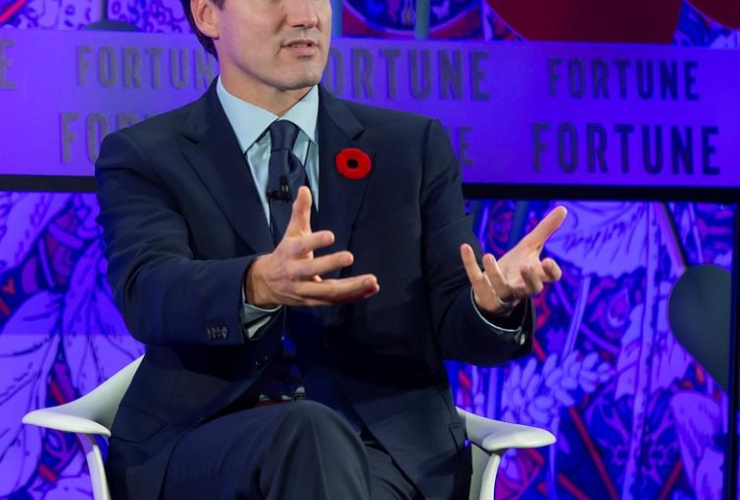Canadians are inspecting the new U.S. political landscape following midterm election results that many believe have added fresh trade-related uncertainty.
The Democrats' majority victory in the House of Representatives could mean the ratification of the recently struck United States-Mexico-Canada deal, known as USMCA, will have to wait well into 2019 — or even until 2020.
Experts predict the pact will eventually gain approval, but until it's ratified businesses will have to deal with considerable unknowns as they try to make longer-term decisions on export strategy and investments.
"There will be a lot of uncertainty for a number of months and that uncertainty is not good for Canadian business interests," said Lawrence Herman, a Toronto-based trade lawyer with Herman and Associates. "There is a chance that the Democrats would agree to have this deal approved. On the other hand, as we've heard, there are those in the Democratic party who don't want to give Trump and the Republicans any kind of break whatsoever."
Dan Ujczo, an Ohio-based international trade specialist, said it will be a "political miracle" to have the USMCA voted on in the spring.
March, he added, is the earliest the deal could be voted on in Congress. Before that, the practical aspects of choosing a new speaker and committee chairs' settling into their positions will take up considerable time. He also noted the 2020 U.S. election season will likely begin as early as spring 2019.
"We'll be lucky to get a vote in 2019," said Ujczo, a partner in the law firm Dickinson Wright. "I think we've got to realistically look at 2020."
U.S. trade deals must be passed by both the House and the Senate, where the Republicans strengthened their majority in Tuesday's vote.
A senior Canadian source with knowledge of the trade discussions said Wednesday that Ottawa doesn't think the midterm results have changed much in terms of timing when it comes to USMCA's ratification. They insisted ratification has been considered dependent on calendars in the U.S. and Mexico all along.
While Ottawa expects the Democrats' new majority in the House to lead to political battles on trade, the feds are comfortable there's widespread, bipartisan support for the U.S.-Canada trading relationship, said the official who spoke on condition of anonymity because they weren't authorized to speak publicly on the matter.
The U.S. political parties, the official added, will need to find areas of common ground and Ottawa thinks USMCA will be one of them.
Capri Cafaro, executive in residence at American University's School of Public Affairs in Washington, said she doesn't expect the obvious divisions between the parties to hold up USMCA's ratification for too long. Cafaro, a former Democratic minority leader in the Ohio state senate, expects the deal to be very early business in 2019.
The Democrats have traditionally stood for free and fair trade, she said.
"It is more likely than not that this might be an area where Democrats could work with the Trump administration and push it forward," she said.
"I don't foresee it being an issue, but you never know."
Canada should also keep the worst-case scenario in mind — the USMCA fails to pass Congress and U.S. President Donald Trump decides to terminate the deal.
Trump has repeatedly called NAFTA one of the worst trade deals he's ever seen and he did so again at a news conference Wednesday. He called on the Republicans and Democrats to come together in support of the deal.
"USMCA has gotten rave reviews," Trump insisted as he addressed reporters.
"Now is the time for members of both parties to join together, put partisanship aside and keep the American economic miracle going strong. It is a miracle — we're doing so well."
Canada will also scrutinize the midterm results for other cross-border impacts, including the fate of the Trump administration's painful tariffs on steel and aluminum imports from north of the border.
Unifor president Jerry Dias, whose union represents auto workers, said now that the midterms are over Canadian MPs from all parties must apply more pressure to secure the removal of unjust tariffs he argues were imposed to score political points with the Republican base.
But neither Cafaro nor Ujczo expects the U.S. tariffs — which allies, including Canada, have responded to with countermeasures of their own — will disappear any time soon.
"I think barring significant market forces — that may have even more significant political implications — I don't see the tariff issues going away," Cafaro said.
Ujczo said he hopes the tariffs are lifted by the USMCA signing at the end of November, but he noted there's an increasing expectation in the business community that the levies will remain in place well into 2019.





Comments